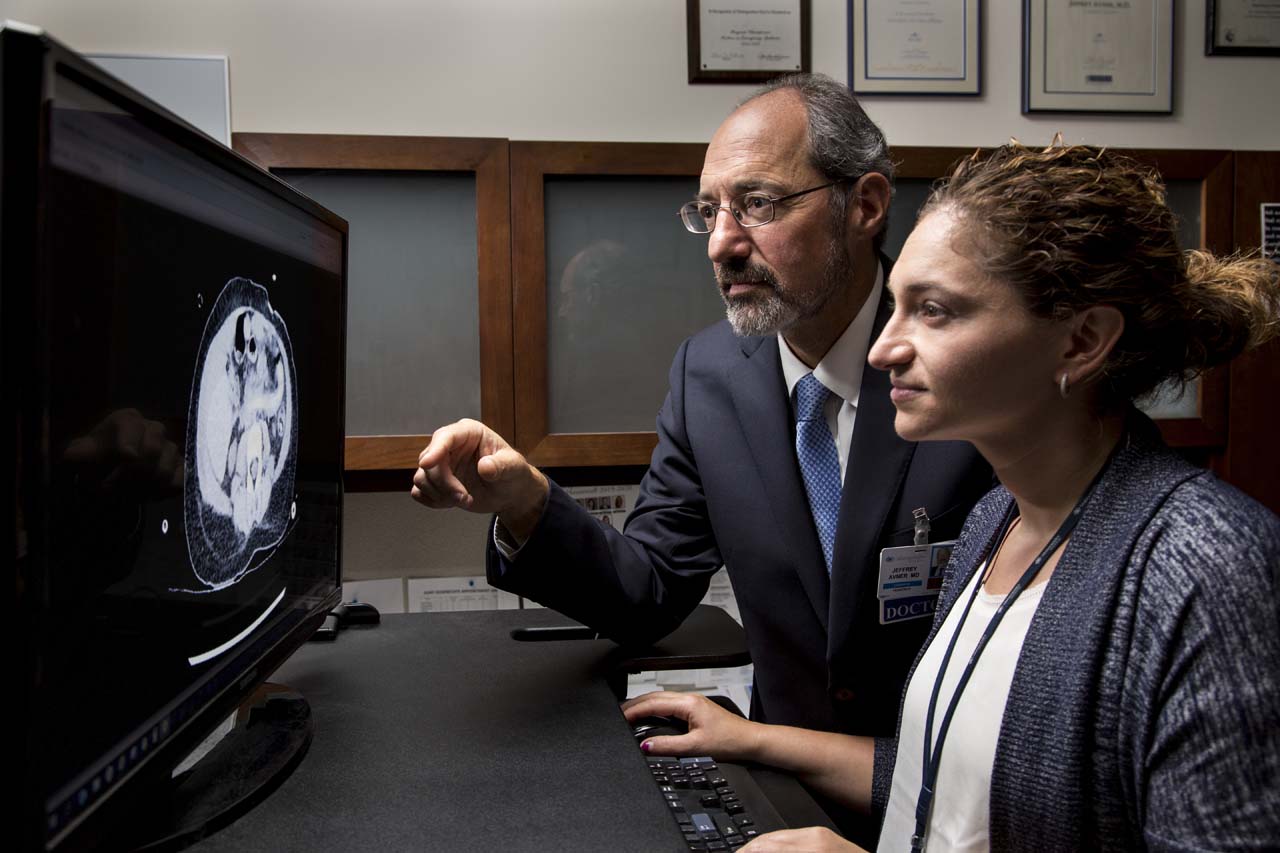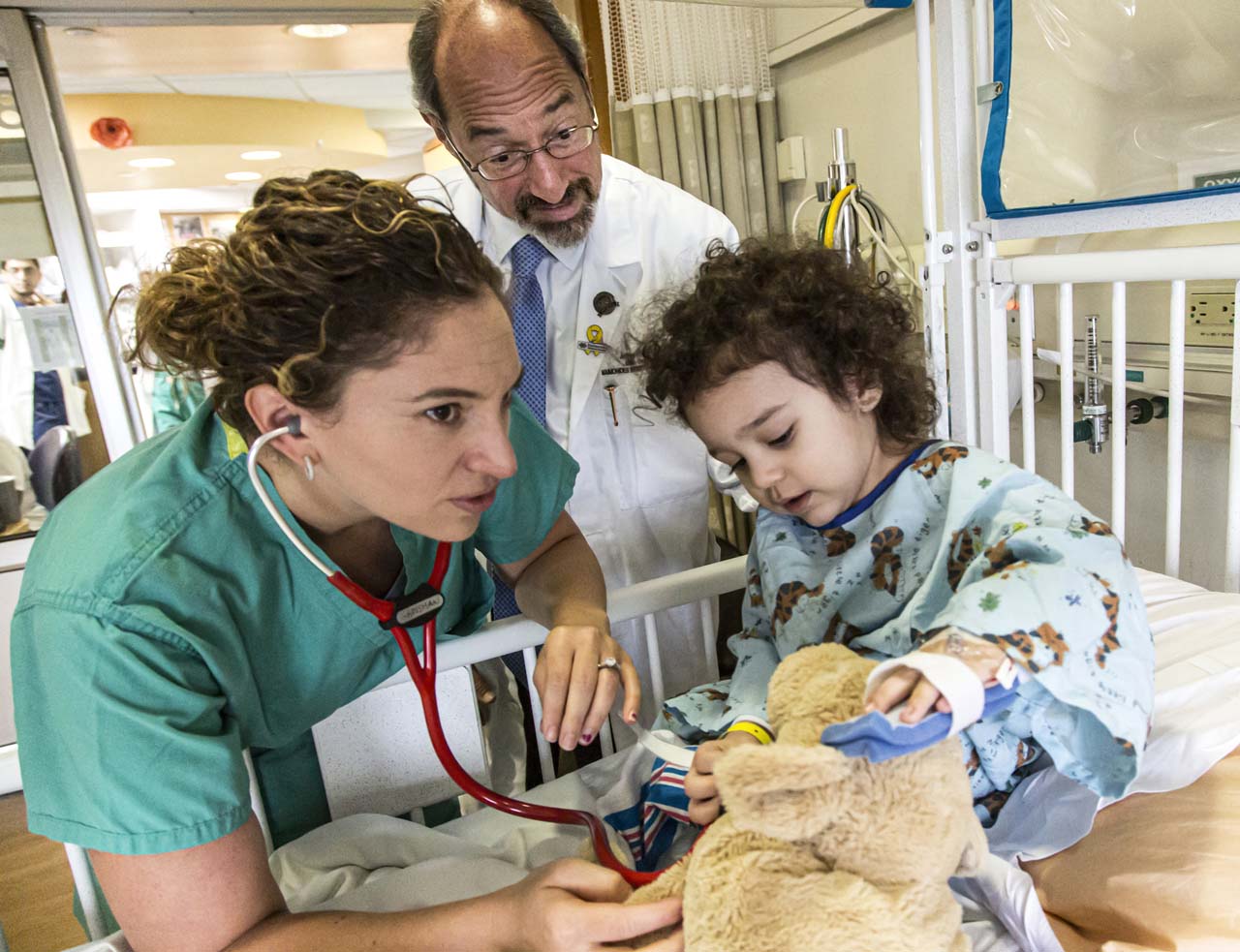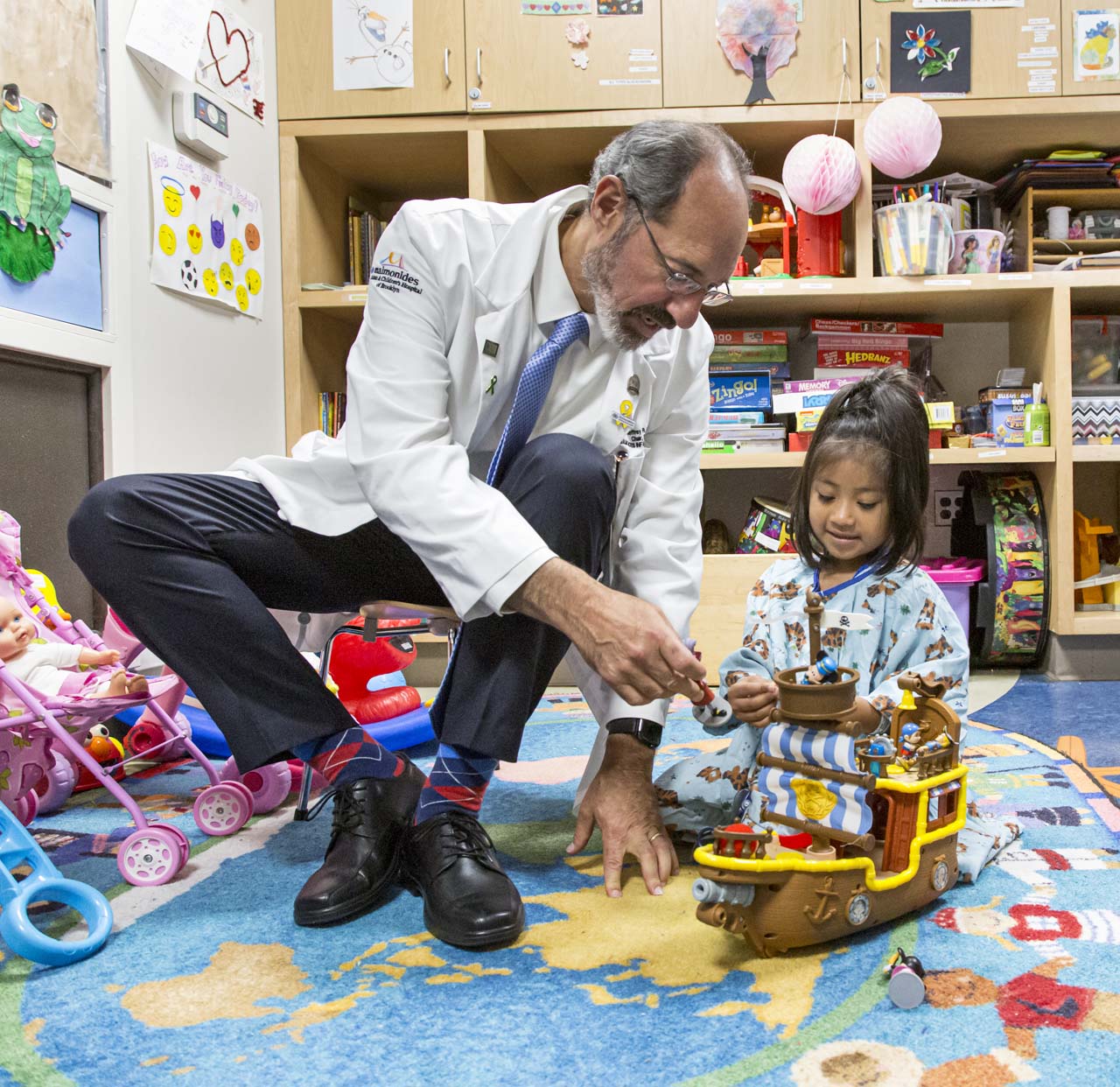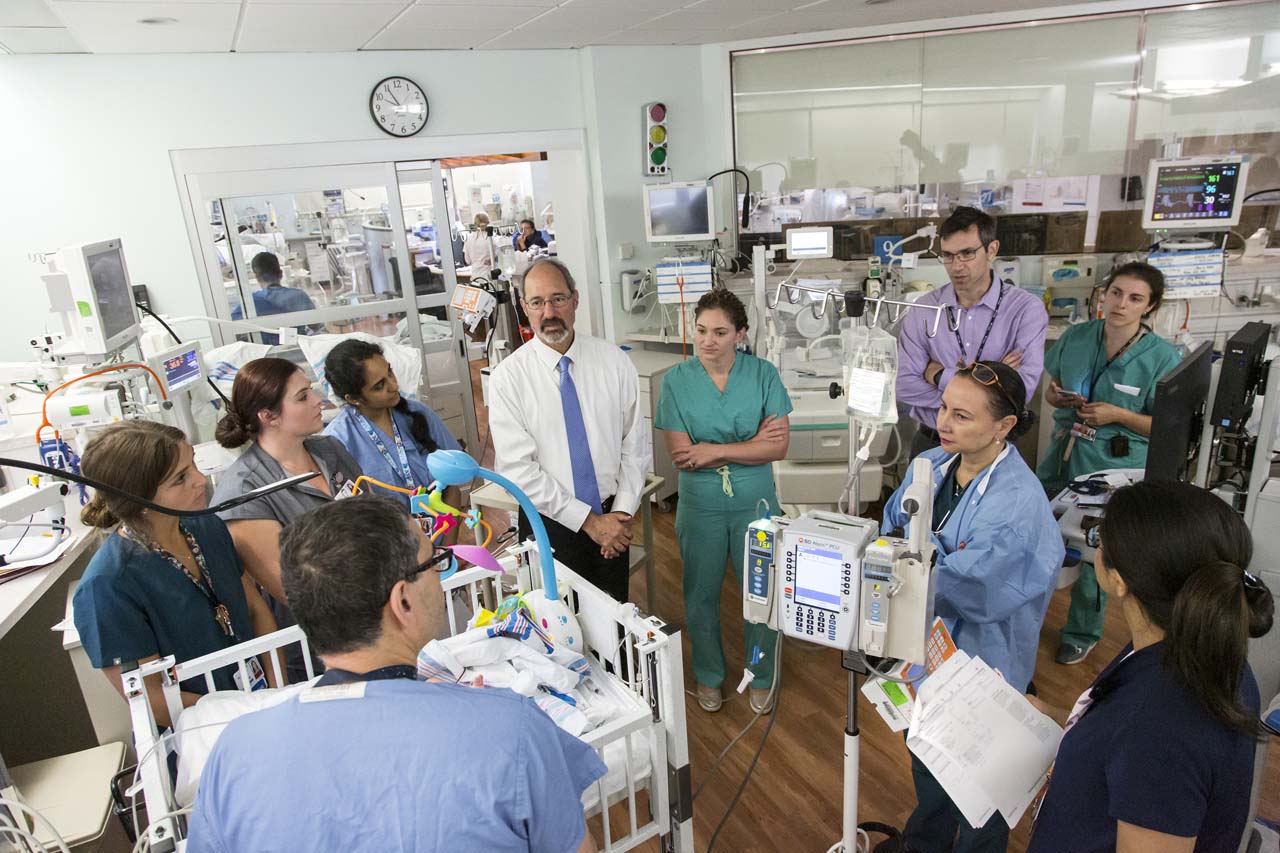HOW MAIMONIDES CHILDREN’S HOSPITAL PROVIDES CRUCIAL CARE FOR BROOKLYN’S GROWING POPULATION OF KIDS
BY JESSICA JONES GORMAN • PHOTOS © AMESSÉ PHOTOGRAPHY
As Brooklyn’s only Children’s Hospital and the largest provider of pediatric care in the borough, Maimonides Children’s Hospital focuses on the treatment of infants, children, and adolescents. Offering a full spectrum of care and a family focused multidisciplinary philosophy, the Maimonides Children’s Hospital averages 2,600 inpatient admissions and 8,300 births each year, providing crucial treatment for Brooklyn’s estimated 589,000 residents under the age of 18 years, 160,000 of which are under 5 years old (according to the U.S. Census Bureau). But the hospital’s staff of doctors and specialists report that it’s their collective experience and attention to community needs that makes the Maimonides Children’s Hospital unique.

“This is a borough with a huge population of children,” noted Dr. Jeffrey Avner, Chair of Pediatrics at Maimonides. “Our goal here is to provide an integrated system of comprehensive care for that population. We do that in part by maintaining communication with all of Brooklyn’s emergency medical services our own, FDNY’s, those of other hospitals, and volunteer corps reaching out through community based organizations and fostering strong partnerships with Brooklyn families. It’s all about improving the quality of care given to kids and improving the healthcare experience in general.”
Tackling over 3,500 annual inpatient admissions, over 33,000 pediatric emergency visits, and featuring 25 medical and surgical subspecialties, the Maimonides Children’s Hospital features one of Brooklyn’s few Pediatric Intensive Care Units (PICU) where conditions like respiratory failure, heart disease, severe infections, and traumatic injuries are handled. Its Neonatal Intensive Care Unit (NICU) tends to high risk deliveries and newborn care in a newly renovated and state of the art center.
“Our NICU, in partnership with Maternity Services, is a New York State designated Regional Perinatal Center,” Dr. Avner said. “About 1,000 babies are cared for annually here, and we have the capabilities to treat a variety of needs. A baby was born recently at just 14 ounces, and because of our NICU services, survived and did well. We provide highly specialized care to the sickest and most vulnerable patients.”
On the pediatric outpatient services side, Maimonides sees over 40,000 pediatric specialty visits and over 30,000 general pediatric visits per year.

“There’s a shift in the healthcare system now, moving away from an inpatient focus, concentrating on outpatient services,” said Dr. Avner. “That’s especially true in pediatrics you want to keep the child out of the hospital because there is less exposure to infection.”
Maimonides maintains a Travel Medicine service so that families who are journeying to different countries can be appropriately vaccinated. The Maimonides Children’s Hospital also recently received a grant that allows for a psychologist in its general pediatric office to help identify and treat children with mental illness.
“This enables us to provide care and even form support groups right inside the pediatric office setting, which is tremendously valuable,” he explained. “We’re building resilience in our children, and tackling adverse childhood events and mental health issues.”
Dr. Avner earned his medical degree from Columbia University Vagelos College of Physicians and Surgeons, and completed both his residency and fellowship in pediatric emergency medicine at the Children’s Hospital of Philadelphia (CHOP).
“CHOP was one of the epicenters of pediatric emergency medicine, which was a new subspecialty at the time,” he recalled. “While working there, my interest in taking care of acute and febrile illnesses grew, and drew me toward this emerging field.”

Dr. Avner took the first subspecialty certifying exam in pediatric emergency medicine in 1992. “It was exciting to be one of the pioneers,” he said, “…to be among the first group of board certified and trained pediatric emergency physicians.”
He worked at Albert Einstein College of Medicine and Jacobi Medical Center before taking a position with Montefiore Medical Center, where he remained for 20 years, helping to create its pediatric emergency medicine division and redesigning the hospital’s fellowship program. In 2016, he was offered the position of Pediatrics Department Chair at Maimonides.
“I was attracted to this job because Maimonides is a hospital that is really embedded in the community,” he said. “There is tremendous support for children and families here. We’re providing care during difficult times, helping these patients get back their health, and doing it in the most comprehensive way.”
The Children’s Hospital also offers pediatric oncology services, and has more than 3,500 visits by cancer patients each year. Maimonides has Brooklyn’s only pediatric cancer program with membership in the national Children’s Oncology Group, offering a wide spectrum of new and innovative treatment options for young patients, and access to the latest clinical trials. It also has Brooklyn’s only Pediatric Trauma Center, integrating comprehensive services for infants, children, and teens in a fully accredited Pediatric Emergency Room.
“The Maimonides Pediatric Trauma Division was created two and a half years ago,” noted Dr. Lynn Model, Director of the Division. “We perform 2,000 pediatric surgeries each year. Our most common emergency traumas include falls and motor vehicle and bicycle accidents.”

Dr. Model completed her residency training at Yale New Haven Hospital, and fellowship training in pediatric surgery at Nicklaus Children’s Hospital. Board certified in pediatric surgery, general surgery, and surgical critical care, she provides a broad array of services, including prenatal consultations, laparoscopic procedures and complex trauma surgeries.
“In one day I may see a baby with a congenital intestinal problem, a child with a burst appendix, and another child with a tumor in the chest,” Dr. Model said. “I specialize in minimally invasive surgery, including in babies, and have performed some of the first robotic surgeries on children in New York City. Minimally invasive surgery is truly a wonderful way to handle very complex cases and speed recovery time.”
Additional components of pediatric trauma services, Dr. Model explained, are community education and outreach.
“We provide the community with education about car seat safety and the importance of bike helmets, and have held over 100 classes this year alone, educating more than 3,000 community members on issues like injury prevention and mass casualty training. We also offer a babysitting course for teenagers that covers everything from CPR to how to change a diaper,” she said.
“What makes us special is that our multidisciplinary team works together to collaborate on every single case, every day,” Dr. Model continued. “We are a large institution with all of the latest innovations and have a veteran staff, but we have retained a strong community feel here.”
Dr. Avner concurred. “What drew me here is that the hospital’s administration and clinical leadership is in lockstep. They get that supporting a strong pediatric program is vital to the function of the main institution. You can tell a lot about a community by looking at how it takes care of its kids. And the way Maimonides focuses on these littlest patients…it speaks volumes.”
Maimonides Children’s Hospital
4802 Tenth Avenue / 888.MMC.DOCS / maimonidesmed.org/children
